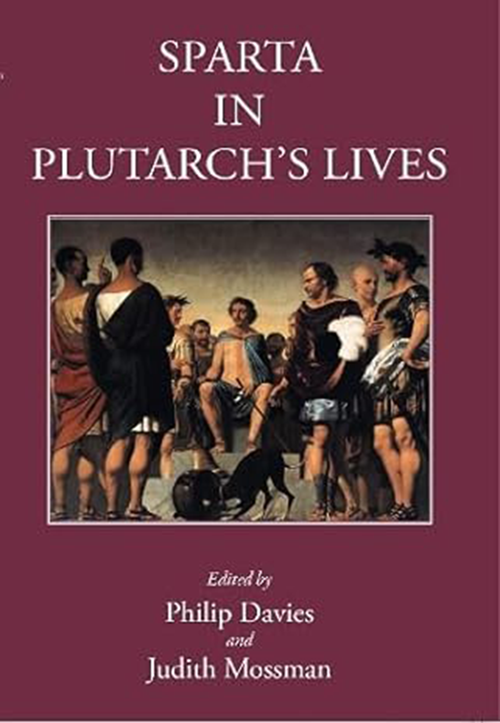
This is a marvellous book with an accurate title. It has good detail for the expert; snippets for the interested or those teaching Sparta for school courses; clarity for the precocious student wanting to go deeper. It revisits old ideas, challenges them, affirms, gives new ones. For those teaching A Level it provides eight scholars who do not just speak about Plutarch, but give ideas about Sparta itself and Roman imperialism. The introduction gives an overview of the book's aims with summaries of each chapter and a discussion of the historical scholarship around Sparta. What becomes clear through reading cover to cover are the overarching and mingling themes of the book where one chapter speaks to another about the ongoing debate concerning the militarism of Sparta, the place of Roman imperialism within Plutarch's oeuvre, his use of Plato and Aristotle, the dangers of philotimia and philonikia to name but two.
Chapter 1 looks at the Life of Lycurgus and discusses the standard topoi of the biography of the nomothetēs in the ancient world. Plutarch follows these, but humanises his Solon and Lycurgus (p. 4); furthermore the accuracy of his tale is not a relevant question as it is of more importance as a didactic moral tale. Of great interest is the end where Rodrigues looks at the reception of this Life by Rousseau, Hamilton in the fledgling USA and during the Third Reich. In Chapter 2 Hodkinson highlights the possibility that Plutarch uses his comparative Lives to question the Roman project through showing two sides of a debate: his Lives and Comparison of Numa and Lycurgus, which respectively consider the militaristic history of Sparta alongside the idealising one of a perfect society, are not contradictory, rather complementary. Chapter 3 provides a contemporary overview of the controversial Great Rhētra, providing commentary upon Tyrtaios and George Forrest's views (p. 57). Chapter 4 engages with the Lives of Lysander and Agesilaus and demonstrates how they are best read together: Occhipinti's analysis of the Lysander's tragic elements and the Agisilaus’ epic ones could be useful for stretching sixth formers. There are thoughts here which unite all of the Lives (including an analysis of the Pompey) with some on Plutarch's teleological view of Rome's conquest of Greece from the Greek perspective (p. 84). Chapter 5 builds upon the material in Chapter 4 and concludes that Plutarch follows the topos that imperial success leads to wealth, decadence, decline. Chapter 6 considers Agis and Cleomenes with thoughts about how the Parallel Lives tie up loose ends when read in cultural sets (i.e. the Romans, the Spartans). Chapter 7 engages with Spartan oratory, concluding how the longer, more elaborate speeches of the Agis, in contrast to Lycurgus’ shorter style, symbolise Sparta's decline. There is discussion of an extended speech by a woman, Chilonis, and its links to the Antigone (pp. 147–148). Chapter 8 has a fascinating digression upon the black broth and how the evidence suggests that it was a universal Hellenic nourishment rather than a Spartan delicacy. The second part of this chapter then discusses how this meal represents Sparta's swan song during Plutarch's time as a cultural museum, set in aspic for tourists to visit. The chapter looks at two perspectives on this: did this show the final cultural decline of Greece or was this process in fact a panegyric of Sparta's military past and mixed constitution which now formed the foundation of Rome's? The sting in the tale is that, just as Sparta had become decadent, Rome would too.
There are endnotes which develop ideas, a full thematic index, extensive Greek and Latin quotations with translations and an index locorum.


